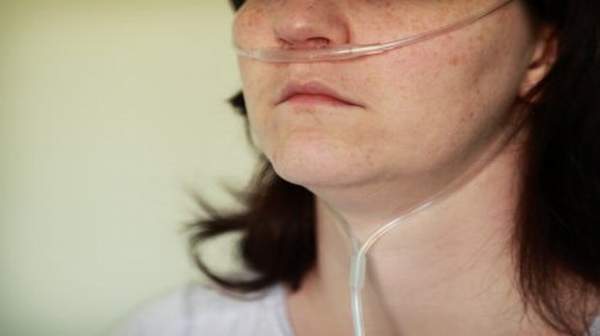What's in this article?
What is Emphysema
Emphysema is a form of chronic (long-term) lung disease. People with emphysema have difficulty breathing from a limitation in blowing air out. There are multiple causes of emphysema, but smoking is by far the most common.
Emphysema is one of the main types of chronic obstructive pulmonary disease (COPD). It’s called “obstructive” because people with emphysema exhale as if something were obstructing the flow of air. The other form of COPD is chronic bronchitis, which can also be caused by smoking.
Although emphysema has no cure, quitting smoking reduces the speed at which the disease gets worse.
Emphysema Causes
The main cause of emphysema is long-term exposure to airborne irritants, including:
- Tobacco smoke
- Marijuana smoke
- Air pollution
- Manufacturing fumes
Rarely, emphysema is caused by an inherited deficiency of a protein that protects the elastic structures in the lungs. It’s called alpha-1-antitrypsin deficiency emphysema.
Emphysema Symptoms
Shortness of breath is the most common symptom of emphysema. Cough, sometimes caused by the production of mucus, and wheezing may also be symptoms of emphysema. You may notice that your tolerance for exercise decreases over time. Emphysema usually develops slowly. You may not have any acute episodes of shortness of breath. Slow deterioration is the rule, and it may go unnoticed. This is especially the case if you are a smoker or have other medical problems that limit your ability to exercise.
One of the hallmark signs of emphysema is “pursed-lipbreathing.” The person with emphysema struggles to exhale completely, in an attempt to empty trapped air. They purse their lips, leaving only a small opening. Then, when they exhale, the lips block the flow of air, increasing pressure in the collapsed airways, and opening them, allowing the trapped air to empty.
People with emphysema may develop a “barrel chest,” where the distance from the chest to the back, which is normally less than the distance side to side, becomes more pronounced. This is a direct result of air becoming trapped behind obstructed airways.
Diagnosis of emphysema
COPD, including emphysema, is diagnosed mainly using a lung function test called spirometry. Other tests may help in diagnosis of emphysema including:
- other lung function (or breathing) tests
- chest x-rays
- CT scans.
How COPD and Emphysema related ← learn more
What is the treatment for emphysema?
The first treatment for patients with emphysema is smoking cessation if they are currently smoking tobacco. This is a difficult lifestyle change for many patients, and without support from their doctors, family members, and friends; this most important treatment will likely fail. The best way to accomplish this difficult task is outlined in the “quitting smoking” section. In addition, there is pharmacological and surgical therapy available for emphysema patients and these therapies.
Management includes:
- smoking cessation (immediate and complete smoking cessation is the most effective treatment for COPD and emphysema) and avoidance of other air pollutants
- respiratory (pulmonary) rehabilitation programs
- oxygen treatment, in advanced cases
- anti-inflammatory medications, medicine to widen the airways (bronchodilators) and loosen the phlegm, and antibiotics
- stress management techniques
- gentle, regular exercise to improve overall fitness
- influenza vaccination (yearly) and pneumococcal vaccination to protect against certain types of respiratory infection.





